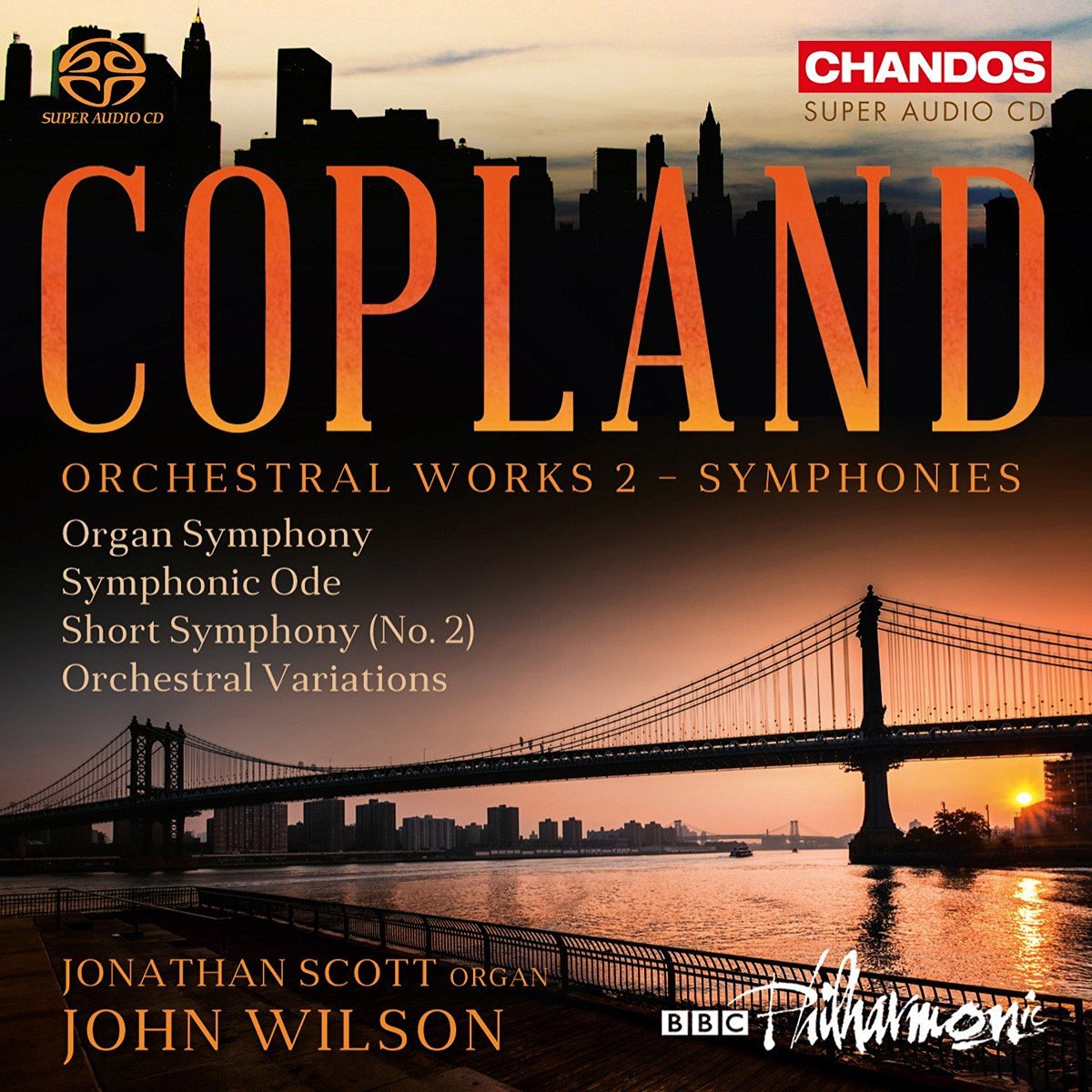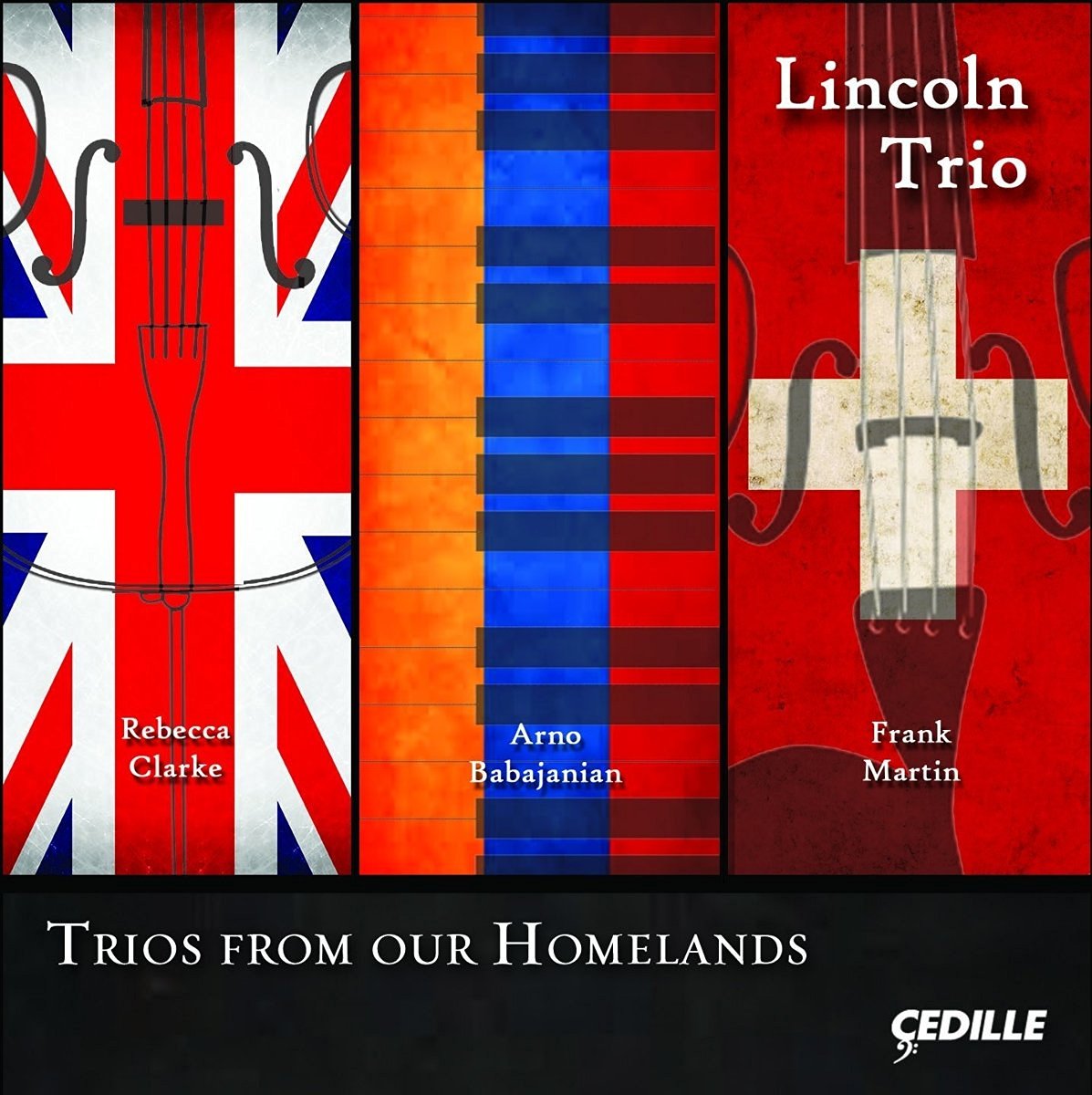 Copland: Orchestral Works Volume 2 Jonathan Scott (organ),BBC Philharmonic Orchestra/John Wilson (Chandos)
Copland: Orchestral Works Volume 2 Jonathan Scott (organ),BBC Philharmonic Orchestra/John Wilson (Chandos)
This disc is a welcome reminder that Aaron Copland’s populist, diatonic ballet scores only tell half the story; the early and late stages in his career contain music which is far less ingratiating. Pieces like the Symphony for Organ and Orchestra, first performed in 1925 and the source of a much-repeated quote from conductor Walter Damrosch that if Copland could write a piece like this aged 23, “within five years he will be ready to commit murder!” It isn’t an organ concerto, the instrument treated very much as part of the orchestra. Organist Jonathan Scott is more prominently balanced than his counterpart on Michael Tilson Thomas’s recent live performance, the music sounding far spikier as a result. This is a difficult work to love, Copland’s opening movement distinctly chilly. Things do hot up in the central scherzo, but it’s all a bit loud and shouty. This performance is technically superb, John Wilson’s BBC Philharmonic sounding far more energised than they did on the previous volume in this series. But I was relieved when the work rumbled to its conclusion. Those looking for light relief won’t find it in Copland’s Orchestral Variations, a 1957 transcription of the early Piano Variations and a much more appealing work, rhythmically interesting and superbly scored.
The Symphonic Ode had a problematic birth: Koussevitsky’s Boston Symphony players struggling with Copland’s insanely complicated rhythms. Wilson’s brass are heroic in the closing stages, and the music’s lighter moments aren’t undersold. But the best work on this disc is the deceptively lightweight Short Symphony (about which Koussevitsky complained “it’s not too difficult, it’s impossible!”). Transparently orchestrated, rhythmically fiendish and harmonically approachable, it gets a sharp, witty reading, Copland’s Stravinskian metre changes effortlessly handled. Chandos’s production values are predictably good, and the sleeve note is highly readable.
 Charlemagne Palestine: Nothing to tell, only listen (Megadisc Classics)
Charlemagne Palestine: Nothing to tell, only listen (Megadisc Classics)
Were record shops still to exist, Nothing to tell, only listen would be filed in the small ‘Experimental’ section downstairs, along with a few dusty LPs of Cage and Cardew. As such, it’s worthy of attention – a mind-numbingly peculiar and unhinged release which deserves praise by virtue of its very existence. Charlemagne Palestine’s CV includes early work for the likes of Allen Ginsberg and ukulelist Tiny Tim, but he’s now known as a performance artist whose spare piano, carillon and organ improvisations are accompanied by cognac, cigars and legions of cuddly toys. Nothing to tell, only listen’s title is reflected in this disc’s presentation – the booklet tells us precious little, but it does contain pages of engaging photos of teddies, along with a few acknowledgements to friends, sound engineer and producer.
Watching Palestine perform must be like attending an esoteric religious ritual. This performance begins with him singing like a cantor, accompanied by distantly tolling bells and what sounds like a humming wine glass. What follows is beyond easy description, Palestine’s 53-minute “Masssssssssss” beginning with simple, rapid bare fifths, the textures gradually thickening and deepening. It’s minimalist in the extreme, but riveting, Palestine’s frenzied poundings making you fear for the state of his hands. Along with the keys of his Bösendorfer. There’s a tiny “Benedictionnn” to finish proceedings: three curt clunks of a cowbell, evaporating into silence. Strange, occasionally disturbing – but compelling.
 Lincoln Trio: Trios from our Homelands – music by Rebecca Clarke, Arno Babajanian and Frank Martin (Cedille)
Lincoln Trio: Trios from our Homelands – music by Rebecca Clarke, Arno Babajanian and Frank Martin (Cedille)
Obscure piano trios by three relatively unfamiliar composers. Not an easy sell, but this is among the most irresistible chamber releases in aeons, and one that’s had me quietly whooping with delight. These pieces hail from Britain, Armenia and Switzerland, reflecting the polyglot membership of Chicago’s Lincoln Trio. Cellist David Cunliffe presumably chose Rebecca Clarke’s 1922 Trio. Clarke was a pupil of Stanford, moving to the US during World War 1. The trio joins an expanding list of pieces that I can’t believe have slipped through the cracks. Music of alarming intensity, violence and melodic richness, Clarke’s bold harmonies the icing on the compositional cake. Weep with joy at the slow movement’s sublime opening, and marvel at the finale’s bold piano writing. There’s more Clarke coming this way soon in the shape of a disc of her cello music – watch this space. The Armenian composer Arno Babajanian, his presence a nod to pianist Marta Aznavoorian, contributes a piano Trio from 1952 Unsurprisingly it sounds a lot like the music of Babajanian’s well-behaved teacher Khachaturian. A big-boned, accessible bear hug of a piece, the tunes come thick and fast. There’s a crowd pleasing 5/8 Allegro Vivace to close proceedings. Sensationally played too, the balance impeccable.
Swiss violinist Desirée Ruhstrat is represented by Frank Martin’s early Trio sur des mélodies populaires irlandaises. The fun comes in hearing the unbuttoned Irish themes clashing with Martin’s ultra-refined, immaculately organised musical idiom. Somehow it all works, and beautifully so, Martin really letting rip in a glorious final Gigue. It’s funny, life-enhancing and frequently beautiful, given a barn-storming performance. Play the last two minutes at high volume and sensible neighbours will thank you. I love this disc. You will too.














Add comment